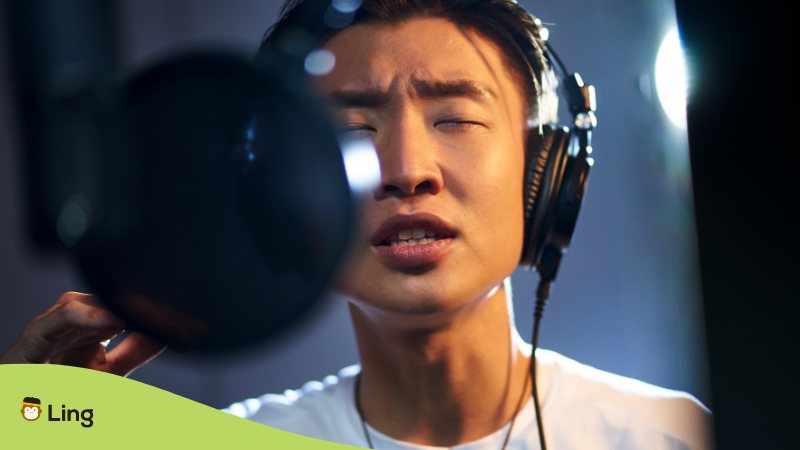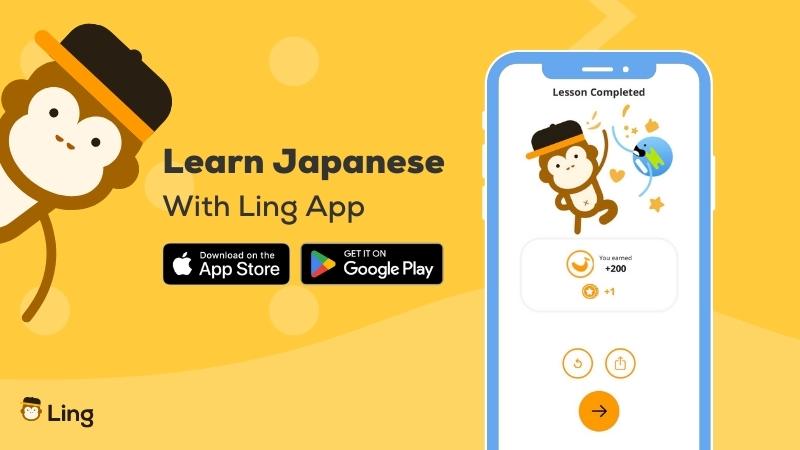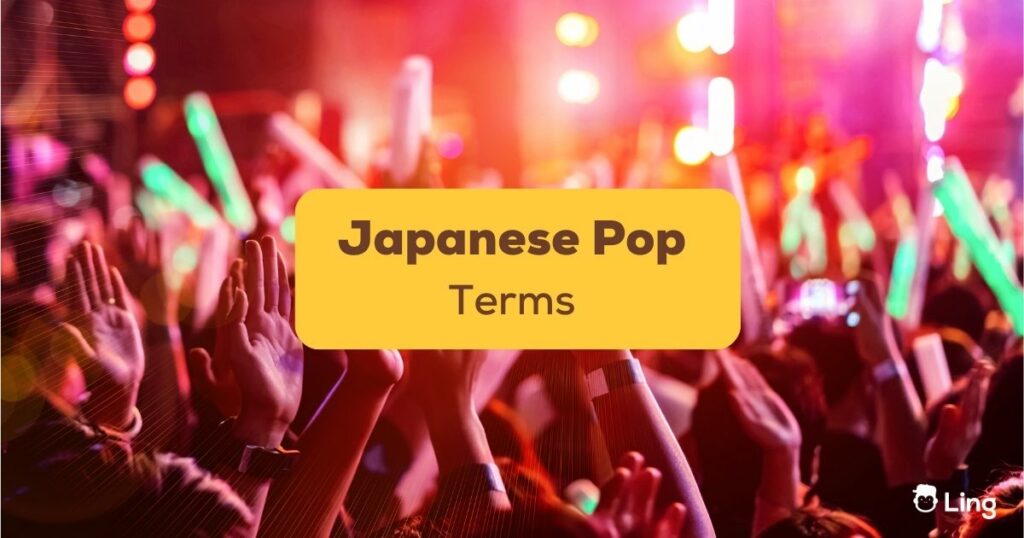Japanese culture, especially the J-pop music genre, has captivated audiences for years! Before most K-pop idols dominated the global scene, J-pop (as well as J-rock) already had a dedicated fanbase in and out of Japan, thanks to its unique sound and vibrant style, and prominent presence in anime, video games, movies, and J-dramas.
Have you recently gotten into J-pop and the Japanese entertainment industry and want to delve deeper? Learning the Japanese pop music terms that fans use is essential! It will help you better immerse yourself into the exciting world of your favorite J-pop idols and Japanese actors.
Plus, this will make it easier for you to engage in the new fandom you’ve just joined and understand the words you might hear on various media! Below, here are some J-pop terms you should know.

Japanese Pop Music Terms
Japanese Slang Terms For J-Pop Idols
Are you a fan of AKB48, EXILE, or Kyary Pamyu Pamyu? Then you should know that many different music terms are used to describe J-pop idols.
That’s because the genre is pretty diverse, including boy groups, girl groups, and solo acts.
J-Pop songs vary, too, with a mix of electrifying melodies and emotional ballads sprinkled with English slang and Japanese words. Japanese music is a fantastic world to explore!
- エース – Ace (Ēsu)- The member of an idol group considered to be an all-arounder in singing, dancing, and looks, and the key to its success.
- アイドル – Idol (Aidoru) – A showbiz person who is trained in singing, dancing, acting, and modeling, and is marketed for their attractiveness and personality.
- ハーフ – Hafu (Hāfu) – Refers to an idol or a person in general who is half-Japanese and half-foreign. Famous “hafu” idols include model Kiko Mizuhara and singer-actor Takeshi Kaneshiro.
- イケメン – Ikemen – A young man considered to be handsome, cool, and neat, with an air of mystery around them. It is a beauty standard among Japanese people that has been popularized by idols and actors.
- かっこいい – Kakkoii (Kakkoī) – A phrase and compliment referring to someone or something with a manly, cool, or attractive appearance.
- かわいい – Kawaii (Kawaī) – The Japanese word for cute. Refers to someone or something looking adorable and lovely, usually with a bright or childlike appearance.
- 期 – Ki – Generation. Commonly used to refer to a J-pop group lineup at a certain point in time. For example, “1ki” refers to the first generation of a group, and so on.
- 選抜 – Senbatsu – Lineup. Used for large J-pop groups like AKB48 and SKE48, to refer to a lineup selected to appear in a single or concert since not every member is included in each project.
- ボーカロイド – Vocaloid (Bōkaroido) – A software developed by the Yamaha Corporation, fusing a base human voice with a musical rhythm to form a song. Vocaloids are often given an animated avatar, with one of the most famous examples being Hatsune Miku.
- x-人 – X-nin – Literally means “x-people”, referring to the number of members in a given lineup. For example, if the current ki of a girl group has 9 members, it is called 9-nin.

Japanese Slang Words J-Pop Fans Often Use
Like other fandoms, J-pop fan culture is colorful and exciting, with a lively presence both online and in music shows and concerts. Some fans are so dedicated that they’ve even made special merchandise and choreography for their idols.
- 誰も大好き (DD) – Short for “Dare mo daisuki”. It means you like all the group members equally and do not have a favorite.
- いちばん – Ichiban – Means “number one.” Refers to one’s favorite member in a J-pop boy band, similar to how a K-pop stan would use the term “bias” when referring to their favorite K-pop artists in a group.
- メンバー愛 – Member ai (Menbā ai) – Fanservice. From the word “ai,” or love. Like how K-pop groups act lovey-dovey on camera, this term describes two J-pop group members playfully acting. Affectionately, like hugging or kissing each other on the cheek. Many groups often do this to their audience’s delight – and screams.
- 推しメン – Oshimen – From the root word “oshi,” meaning to support. Commonly refers to one’s favorite member of a girl group.
- ペンライト – Penlight (Penraito) – A colorful glowing lightstick used by fans of J-pop idols in concerts, and is often waved in sync with the music.
- 卒業 – Sotsugyou (Sotsugyō) – A Japanese word meaning graduation. Refers to an idol’s resignation from their group, usually commemorated with a special event and final performance with fans.
- うちわ – Uchiwa – A round hand fan held by fans during concerts and adorned with a special message or a picture of their favorite idol on it. Like penlights, fans also wave around “uchiwas” while the music is playing.
- ヲタ – Wota – A dedicated J-pop fan, either of the genre in general or a specific idol or group. It’s an alternatively written term for “otaku,” meaning an enthusiast of a particular interest.
- ヲタ芸 – Wota-gei – A special dance performed by fans in unison during concerts, often with chants.
Japanese Phrases That Refer To Idol Promotions
J-pop is a competitive and busy world, spanning not just the television studios and concert halls of Tokyo but other key cities all over Japan and around the world.
Many idols come and go, which is why promoting online, on-ground, TV, and radio is key to standing out from the crowd.
- 握手会 – Akushu-kai – A handshake event where fans can spend a few seconds talking to an idol after buying their album.
- カップリング曲 – Kappuringukyoku – Coupling song. The B-side track of a main single.
- CM – Stands for “commercial message.” Literally a commercial for TV, radio, or even on YouTube. Many brands use an idol’s latest single to promote their product.
- ドラマ – Dorama – A Japanese TV drama. Many idols have branched out into starring in doramas to boost their current popularity or after leaving J-pop altogether.
- PV – Stands for “promotional video,” meaning an idol’s music video.
- 特典 – Tokuten – A Japanese word meaning “special favor.” It is an event that allows fans to meet their idols by purchasing their album or merchandise. Here, fans commonly shake hands, take photos, or talk to their idols for a few seconds. A typical entertainment agency would even encourage bulk buying so fans can spend more time with their idols.

Get Familiar With More Japanese Terms With Ling!
Do you want to deepen your understanding of J-pop and the world of its idols? Learning the different terms fans use can help you better connect with other J-pop enthusiasts and immerse yourself in the genre.
And the best part? Learning Japanese pop music terms and other Japanese words has never been as easy!
With its comprehensive and interactive learning experience, the Ling app makes it simple and fun to practice and master words and phrases in Japanese.
You’ll be able to improve your speaking, listening, reading, and grammar skills through various games, quizzes, and puzzles. And if you need a little extra help, the app even features a chatbot that can assist you and keep you on track.
So, are you ready to become a J-pop and Japanese language expert? Before you book that ticket to Japan to meet your favorite J-pop idols, download the Ling app on the App Store or Google Play now and start your journey to mastering your favorite language!
Updated by: Gwyn



































































